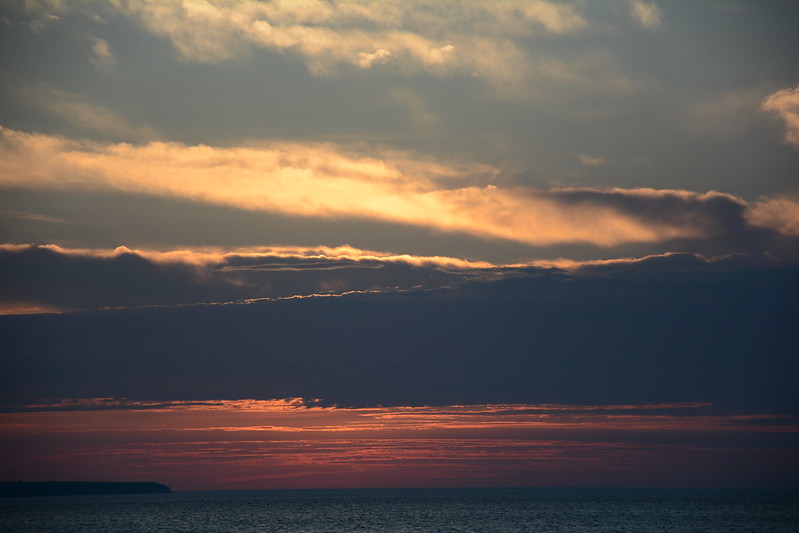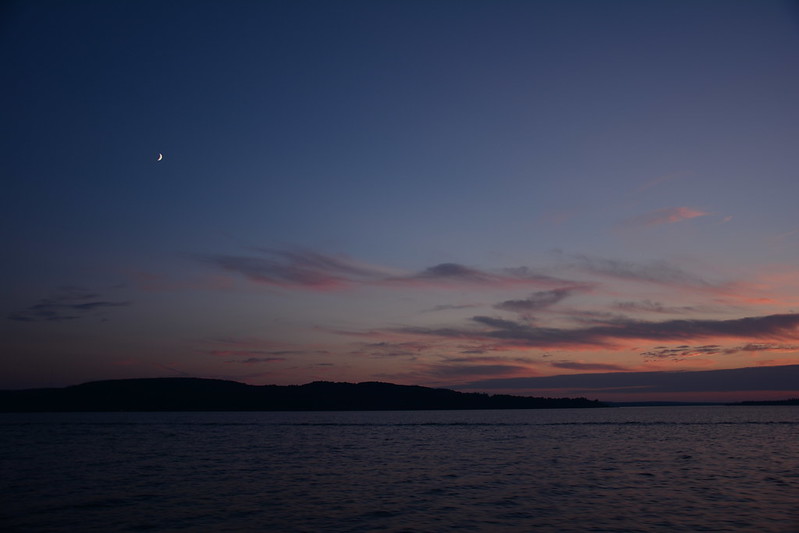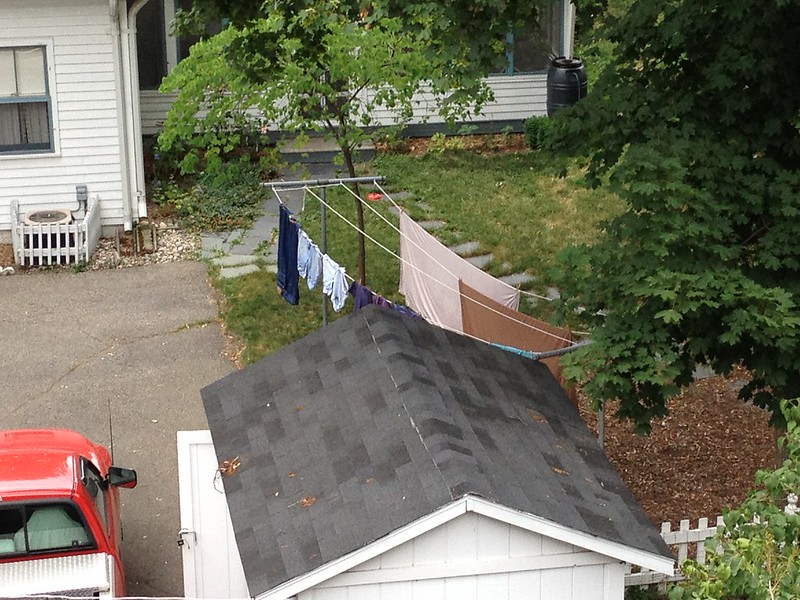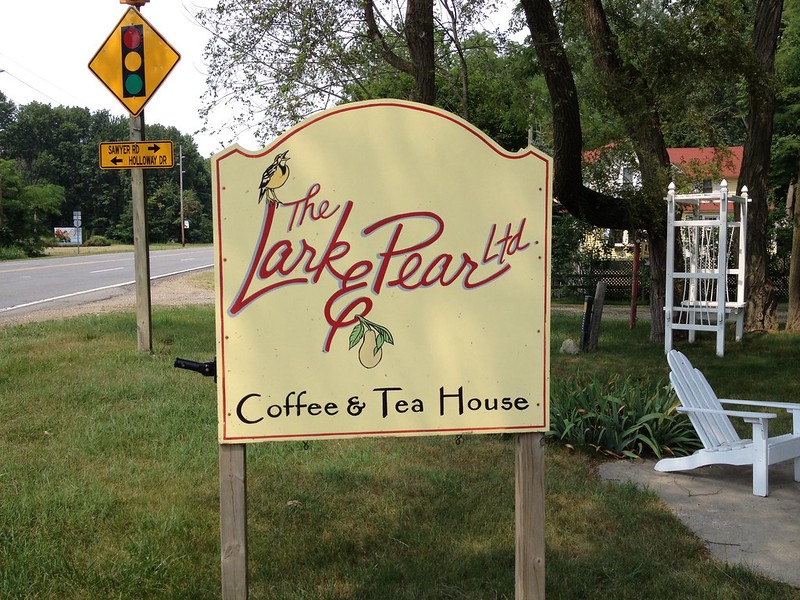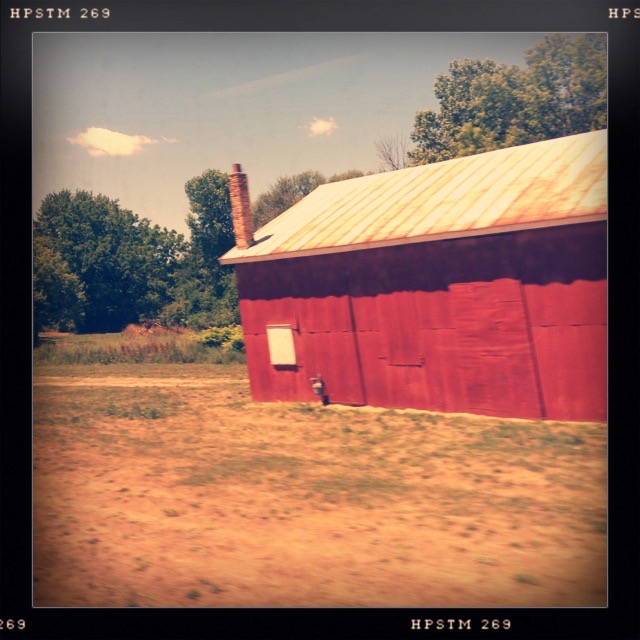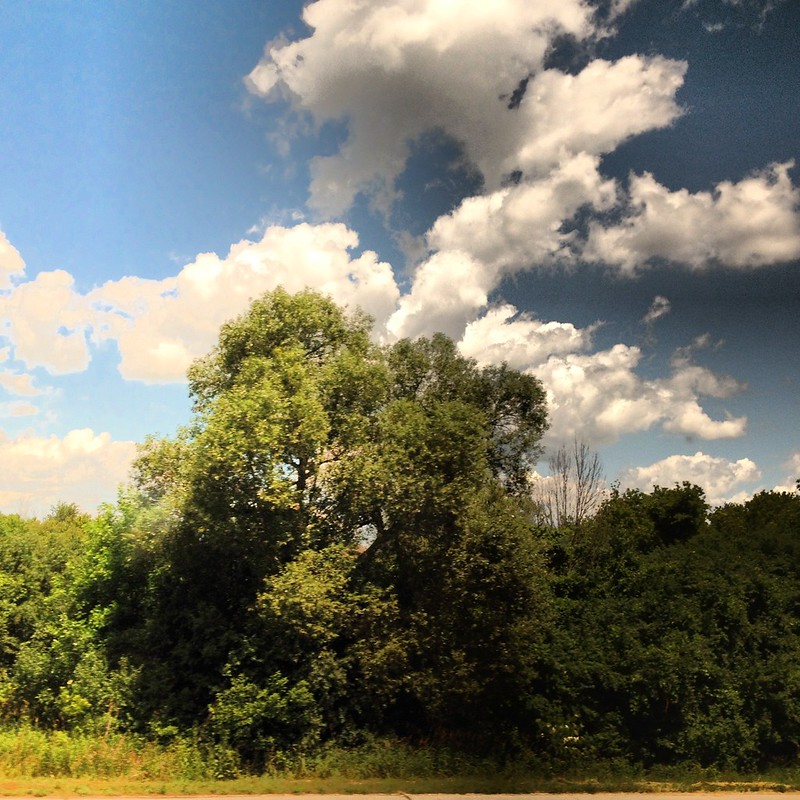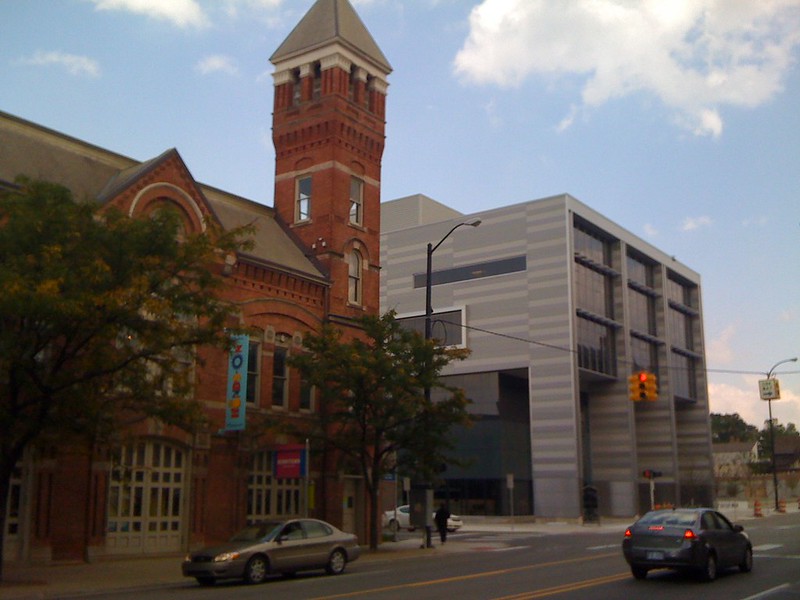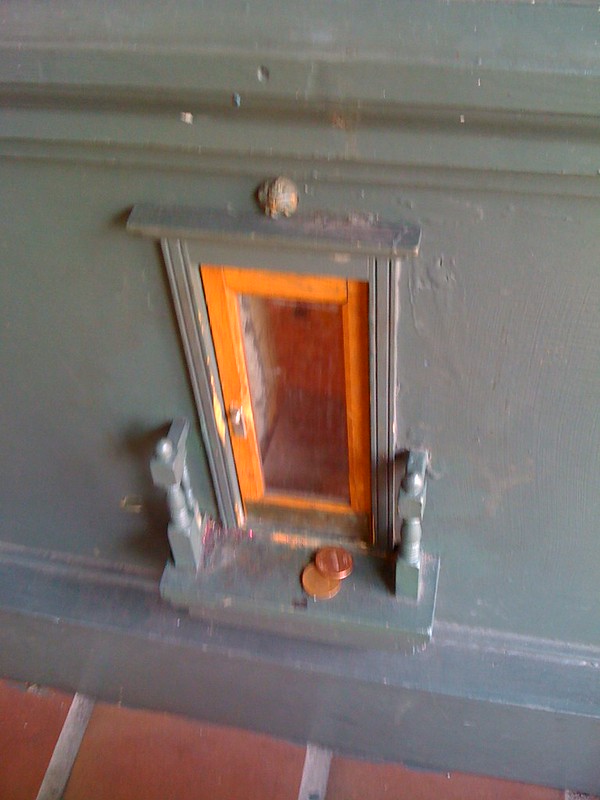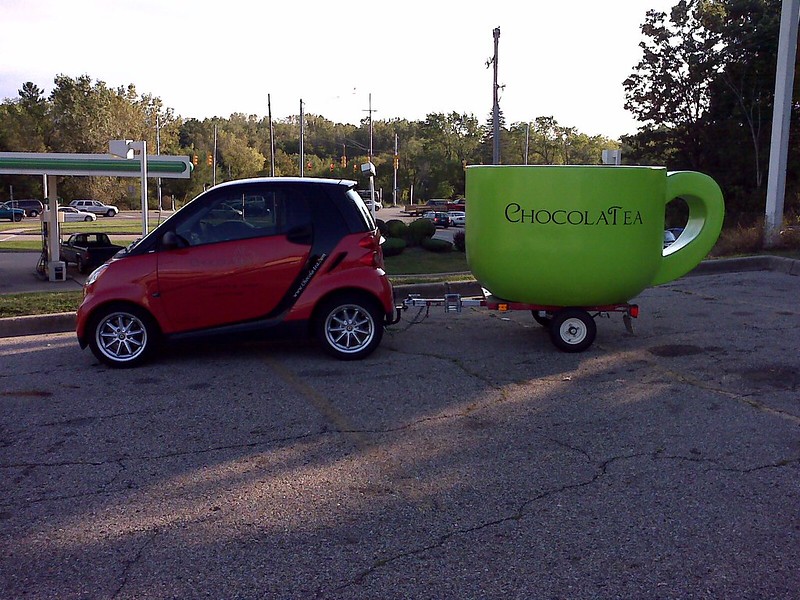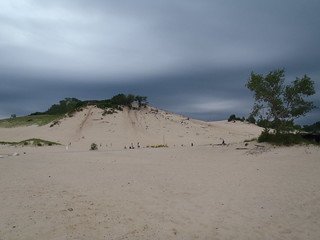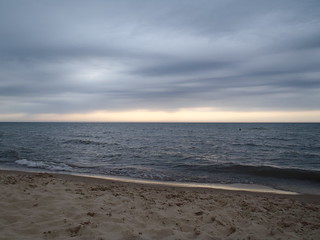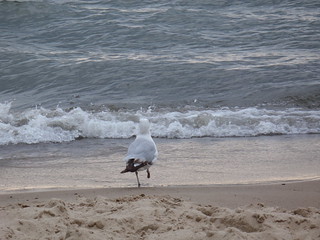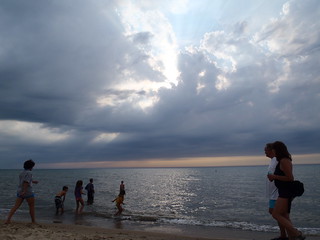After much waffling about whether to take the train to Homewood or to ask for a ride, finally I opted for the 11:42 train, after a break at Café 57. My back demanded stops on the way over to the station, so I couldn’t get to the 10:42 in time.
After a brief stop at Caribou Coffee in Homewood, we set out for Warren Dunes State Park in Sawyer, Michigan, or so we thought. As we approached the Hinsdale oasis, something in my pain-addled brain recognized that I shouldn’t be seeing a sign for O’Hare Airport. Hesitantly I said, “Are we going the wrong way?”
We were.
We turned back to the south suburbs and northern Indiana, where I90/94 sports a plethora of those eyesores we call billboards, touting mostly fireworks, adult clubs, and casinos — perhaps Indiana’s biggest tourist draws. One fireworks seller, Krazy Kaplans, saturates billboard space, with some stretches of interstate littered with a half dozen plus Krazy Kaplans ads staggered on both sides of the highway. I can’t guess their effectiveness, but I can judge their aesthetics. They’re an ugly, tasteless blight. Billboards are bad enough, but cheesy ads slapped on ubiquitous giant signs presents an unbroken visual affront. Once again I thought of an early 1990s drive through Virginia with my aunt, who said billboards had been banned, leaving us to soak in the untainted greenery topped by blue skies without a Krazy Kaplans sign — or 12 — to scar the landscape.
With the lost time and unplanned detour, the backup in northwest Indiana, the time zone difference, a rest stop, a detour to look for a round barn, and a stop at a winery that was about to close and the Lark and Pear, a lovely and quaint toolshed café that was closed, we arrived at Warren Dunes State Park around 6 p.m. Michigan time.
We meandered about a bit, then J. set out to conquer the big dune. I wish I could have, but I’m already in enough pain. I sat in the car for about 20 minutes, noticing that the sky had become cloudy and the formerly hot and oppressive air cooler and comfortable. This was my idea of perfect beach weather. I took my shoes off, found a towel in the trunk, and made my way back to the water’s edge, where I stuck my feet in, then my calves. Brrr, but not as cold as Lake Michigan on the Chicago side. The temperature didn’t deter a lot of people from plunging in, several fully clothed.
For a while, I watched the ring-billed gulls at the water’s edge, where I’d guess they were hoping for something edible to wash up. I loved seeing gulls acting like shore birds instead of avian rats, nagging for and carrying off scraps of human trash.
The beach at Warren Dunes is surprisingly clean — I saw only one cigarette butt — and the sand finer than the beach here at 57th Street. Even at 6 p.m., I was surprised that the large parking lot was more empty than not, and only a few people were left dotting the beach. Those who weren’t picnicking were ascending the dunes or, in the case of many of the children, sliding down from the top. I wondered if I would have had the nerve to try. I’d like to think I would have, all the while suspecting that I wouldn’t.
While I sat there, the hidden sun reflected off the clouds through a break, and I remembered what it was like to live east of Lake Erie, to see sunsets instead of sunrises, to feel the cooling effect of the wind blowing across the water. I didn’t feel homesick — I think it has been too long — but for a moment I felt at home.
J. returned flushed from his exertions. Shortly after, flies made their presence known. I’ve never grasped how such small invertebrates could produce such painful bites with no teeth, but I felt like my legs were being stabbed by tiny but effective lancets. Crepuscular flies are nature’s way of saying it’s time to go.
We headed back on Red Arrow Highway toward one of the restaurants we’d seen earlier, Soe Café. I loved this place. It feels like it’s set in the woods, and the enclosed porch allows you to enjoy the trees and twilight minus the biting bugs. The food (bread with olive dip, potato bacon soup, Maytag bleu cheese burger, and meatloaf) was perfect, and so was the rich coffee from Kalamazoo — so rich I used four packets of half and half. Again I felt at home as the sky stayed light until well after 9 p.m., just like at home. I thought of my apocalyptic dreams, in which the sun shines on the garden and Virgil’s ash tree like early morning although it’s 10 at night.
Strong coffee couldn’t keep me awake, even as we returned to an earlier time, so to me the long drive seemed unusually short. But at least I gained an hour on the way back. Net-net = 0.
As we got close to The Flamingo, we saw quite a parade of police vehicles with lights flashing, probably at least 15, with the three or four that pulled off and headed west on 55th as we came up. It looked like we’d missed the crime of the century. J. negotiated his way through them and parked, then asked an officer cruising the parking lot on a four wheeler about the commotion. He said he was told that they routinely clear out the park at the 11 o’clock closing. I’ve see one or two cars and some cycles or four wheelers pass through at closing, but not in force like this. I’d guess he meant on summer holiday weekends, when the potential for trouble peaks. But I don’t know.
And so ended a happy if pain-filled day.











